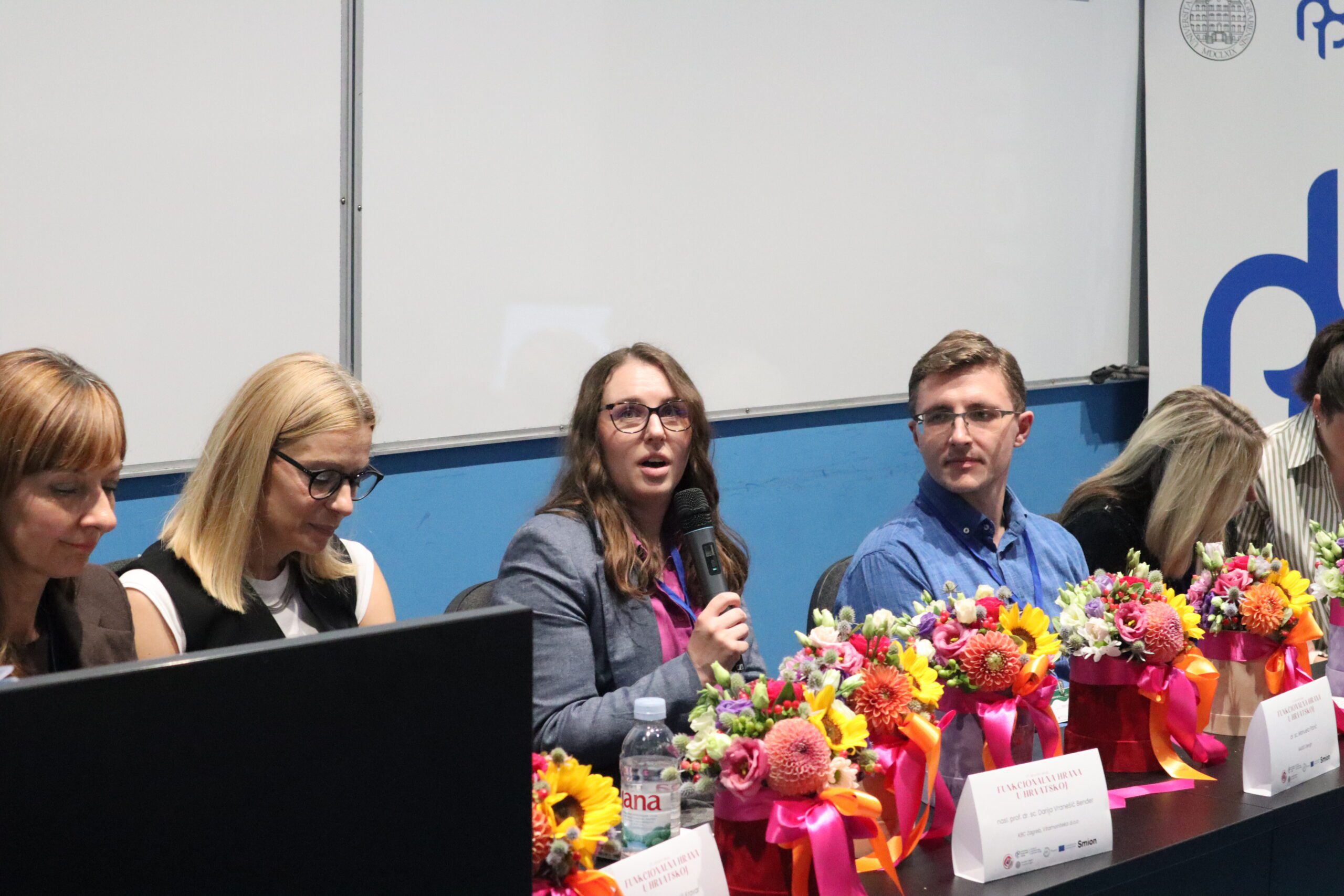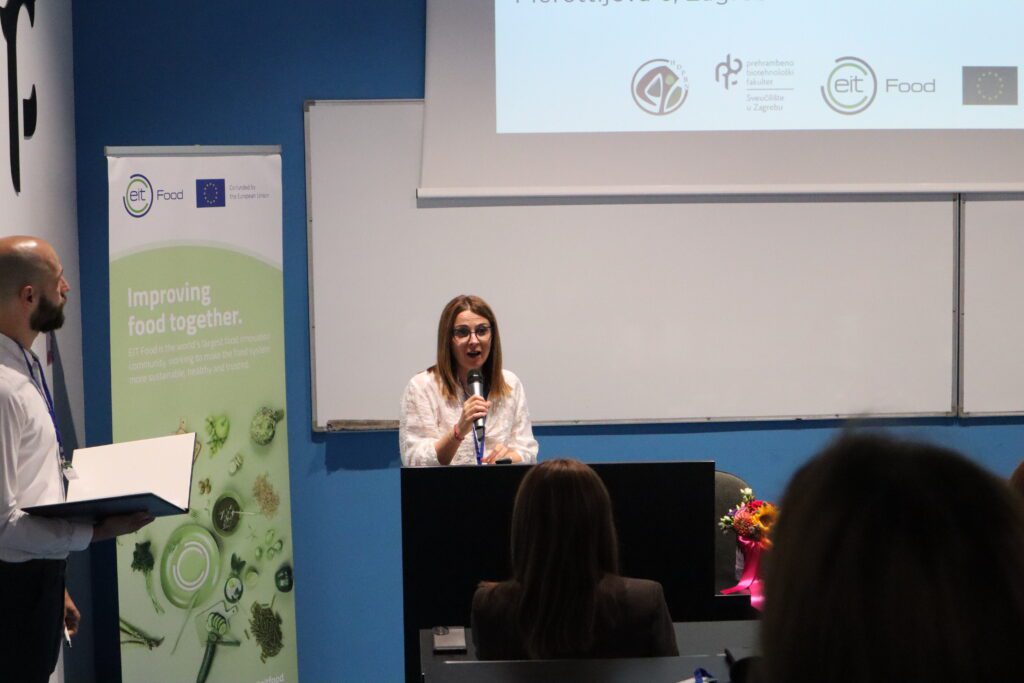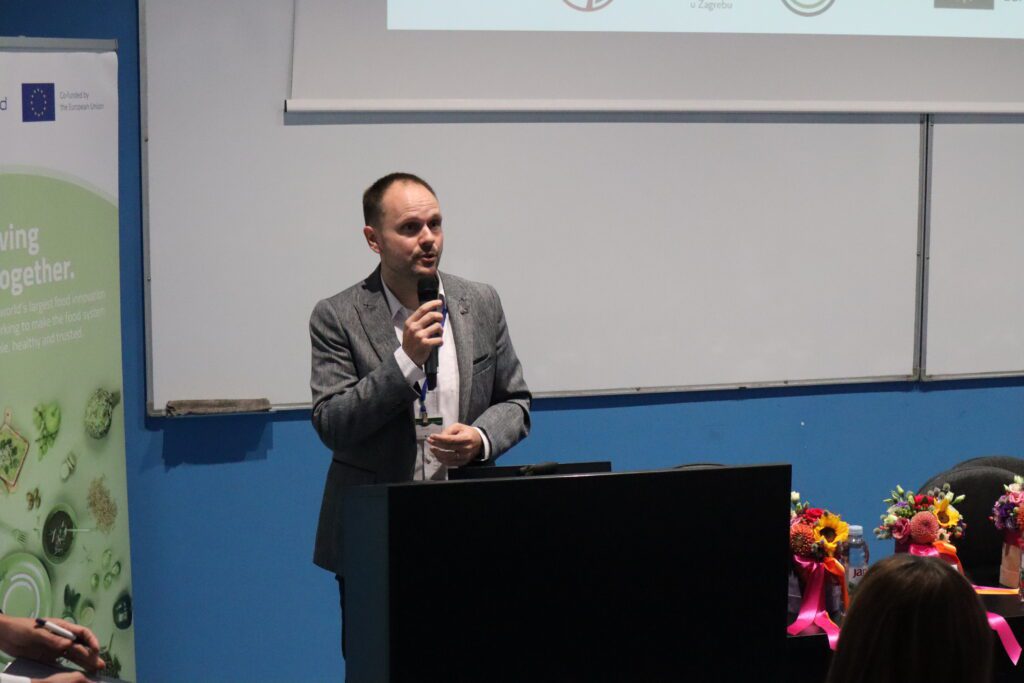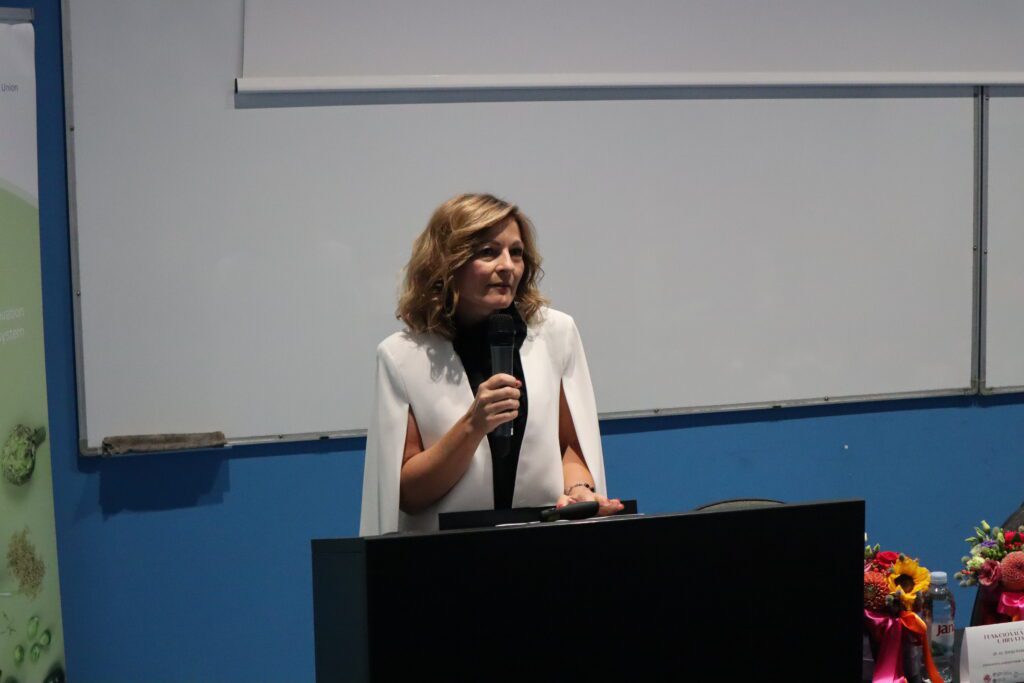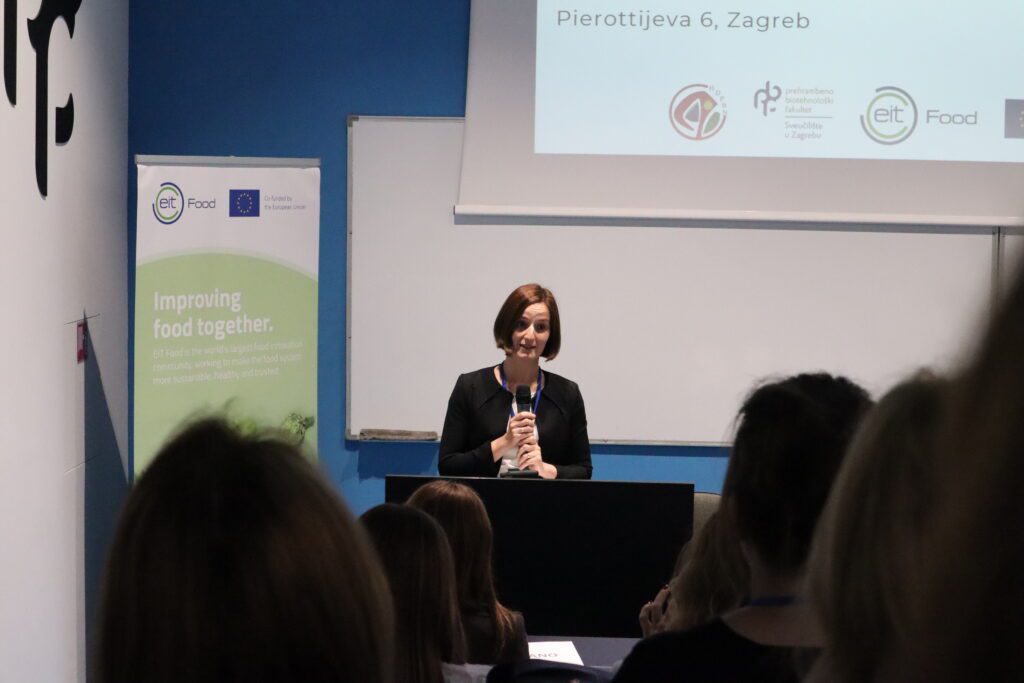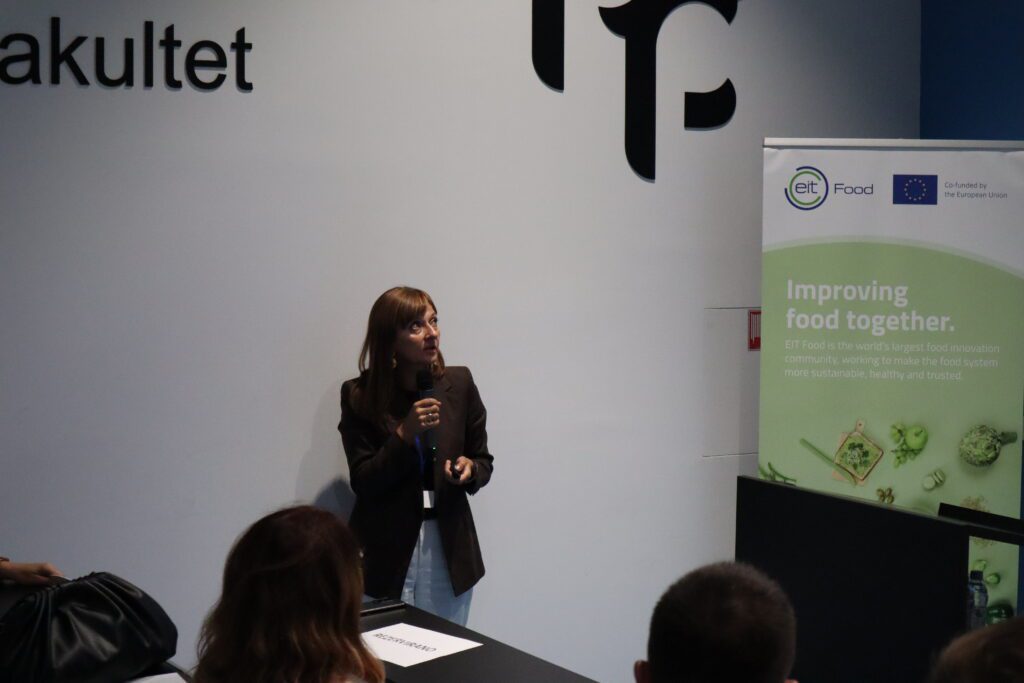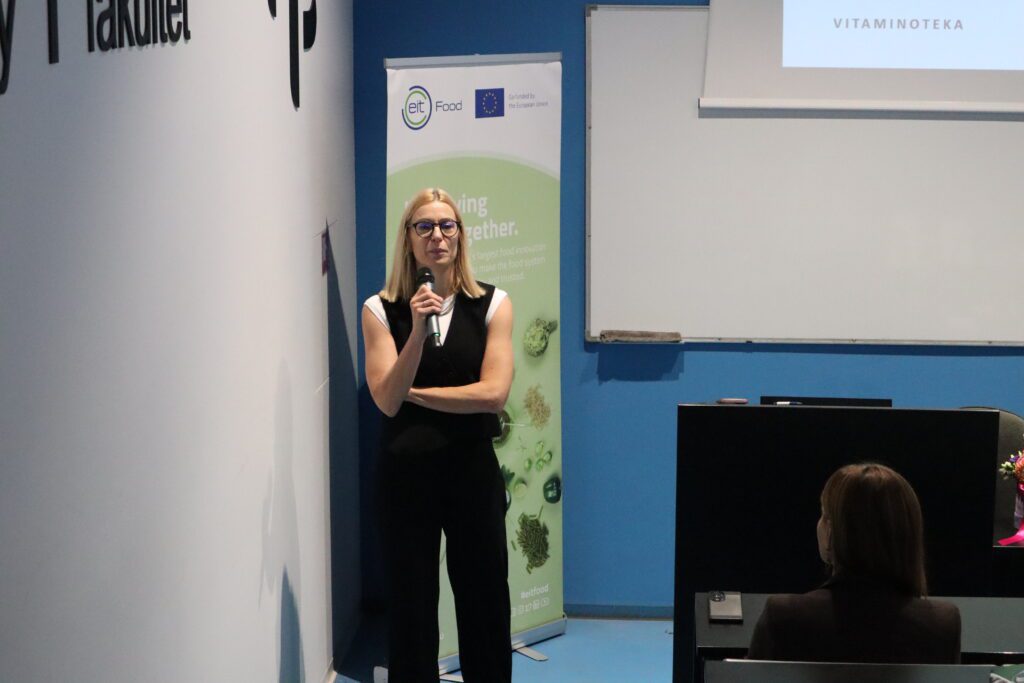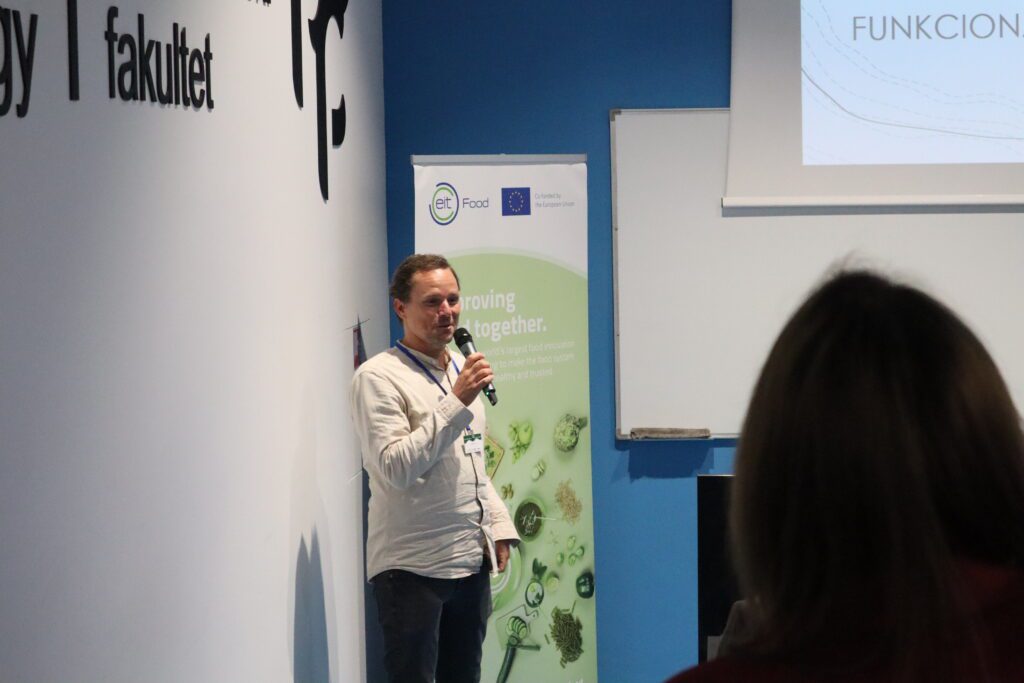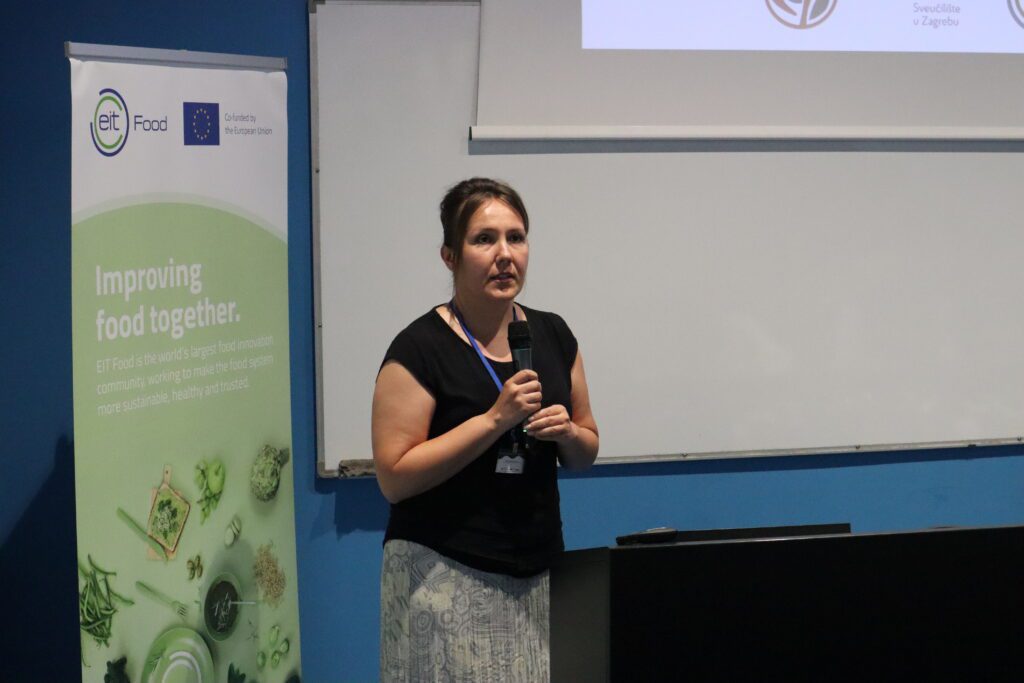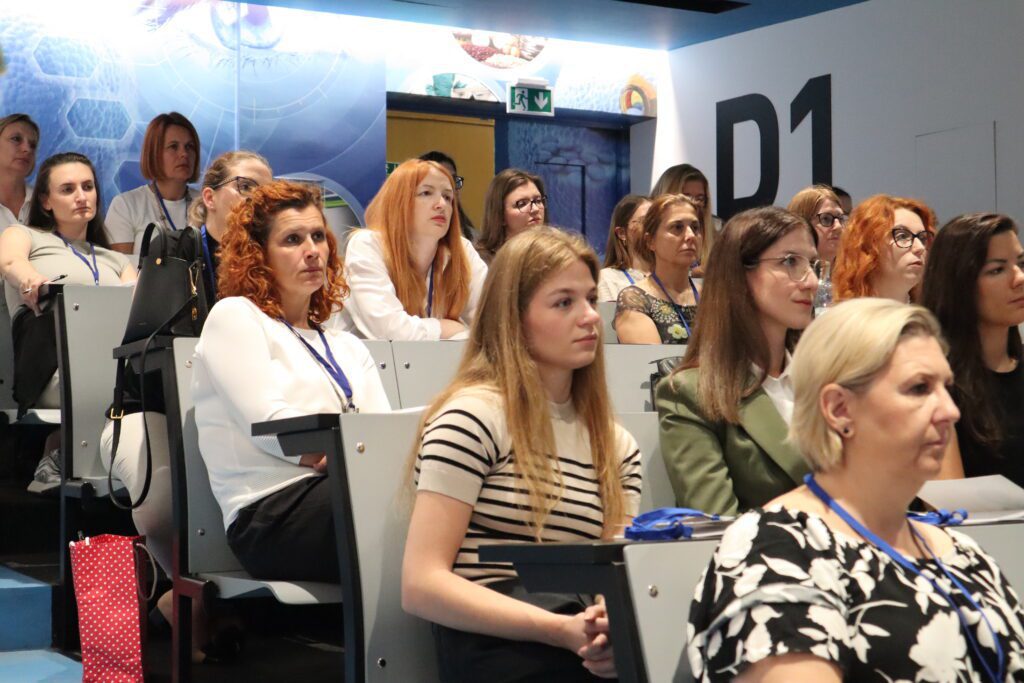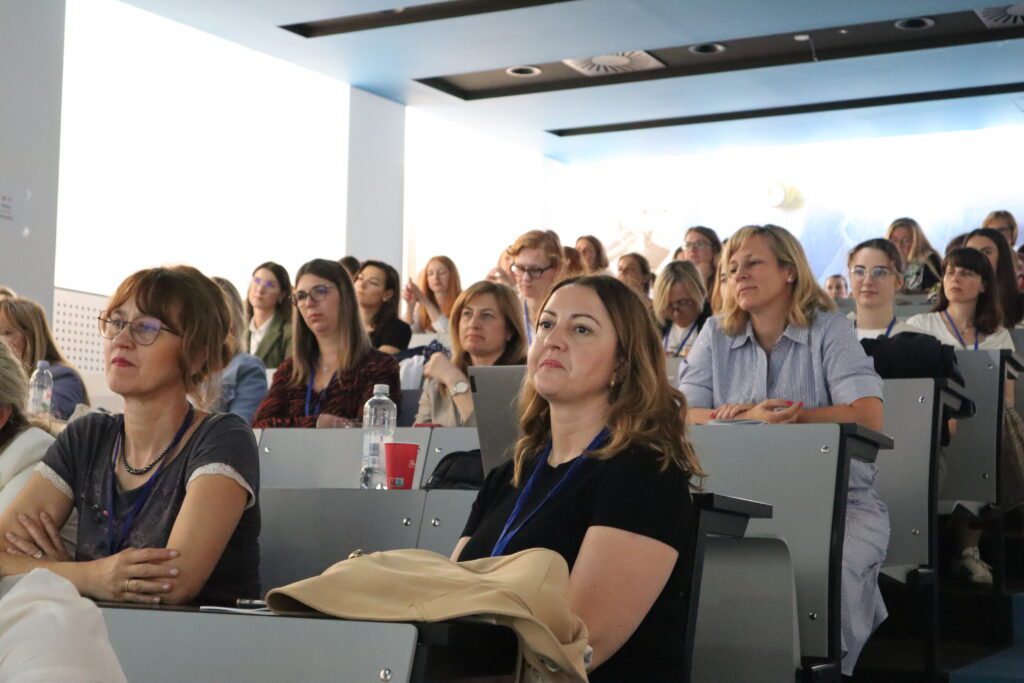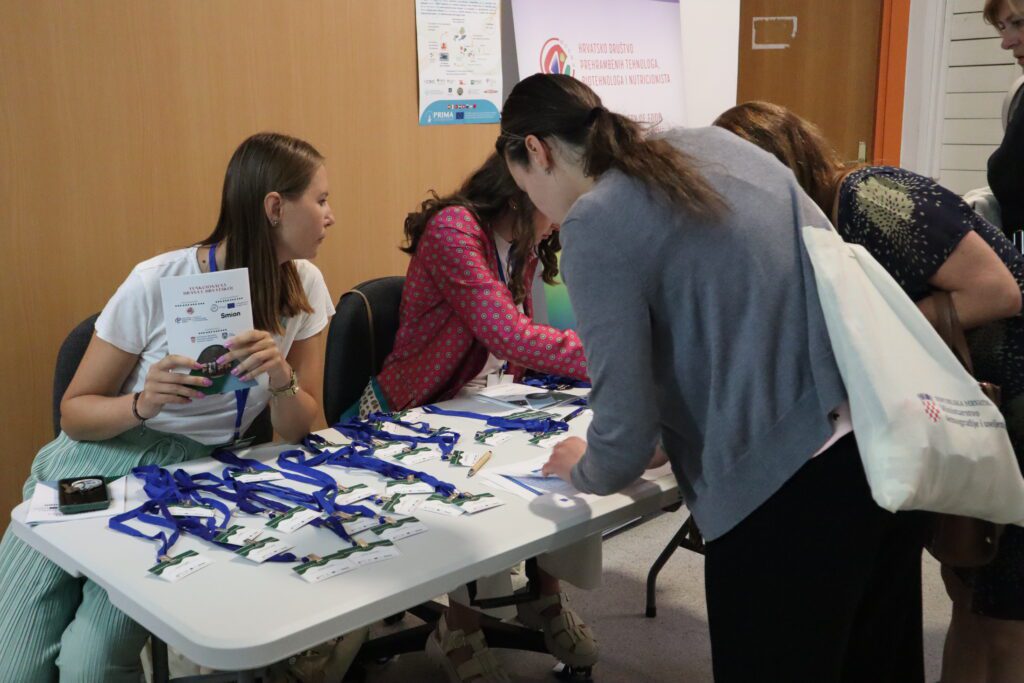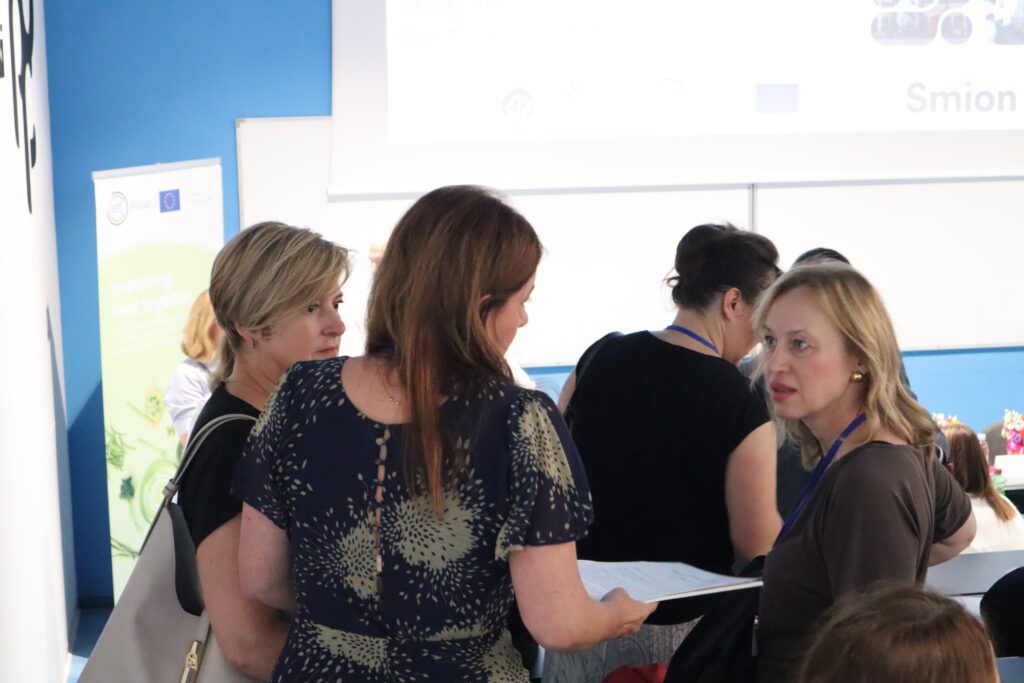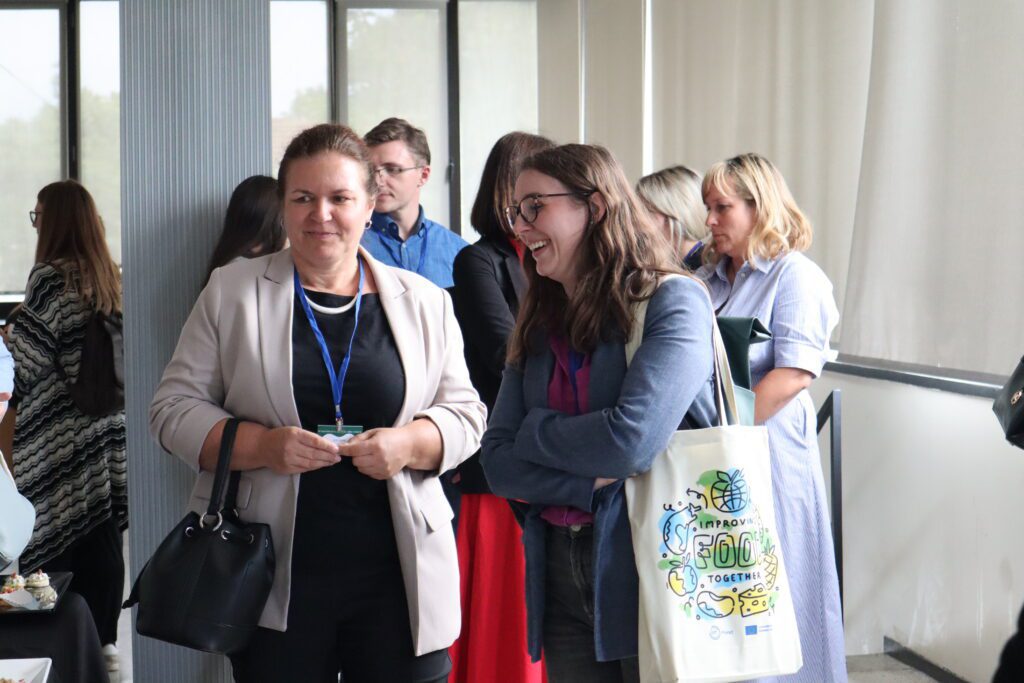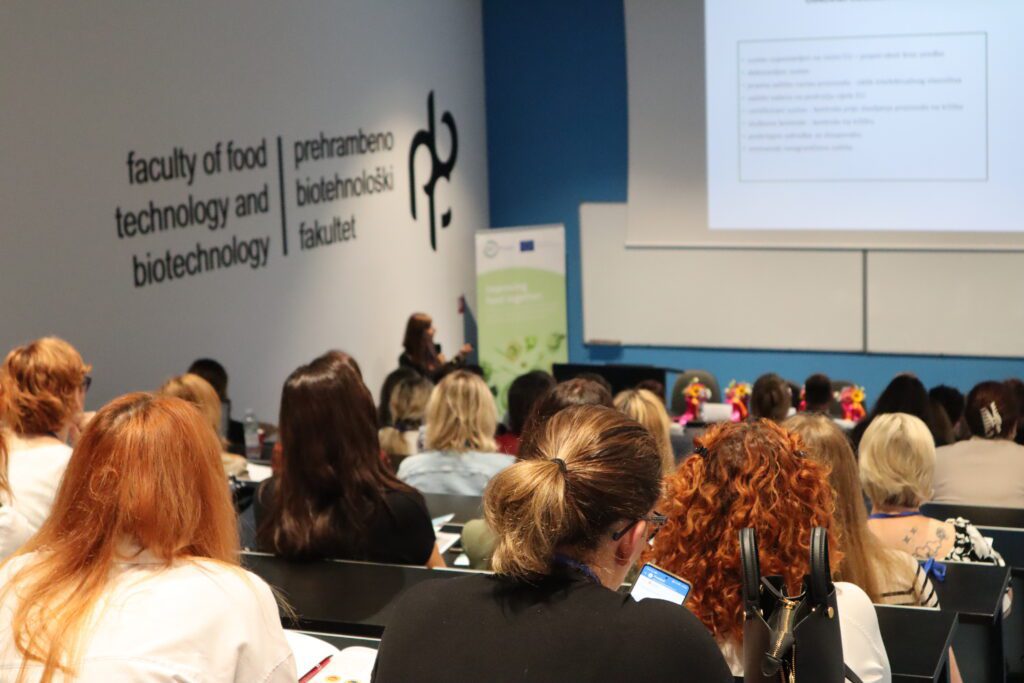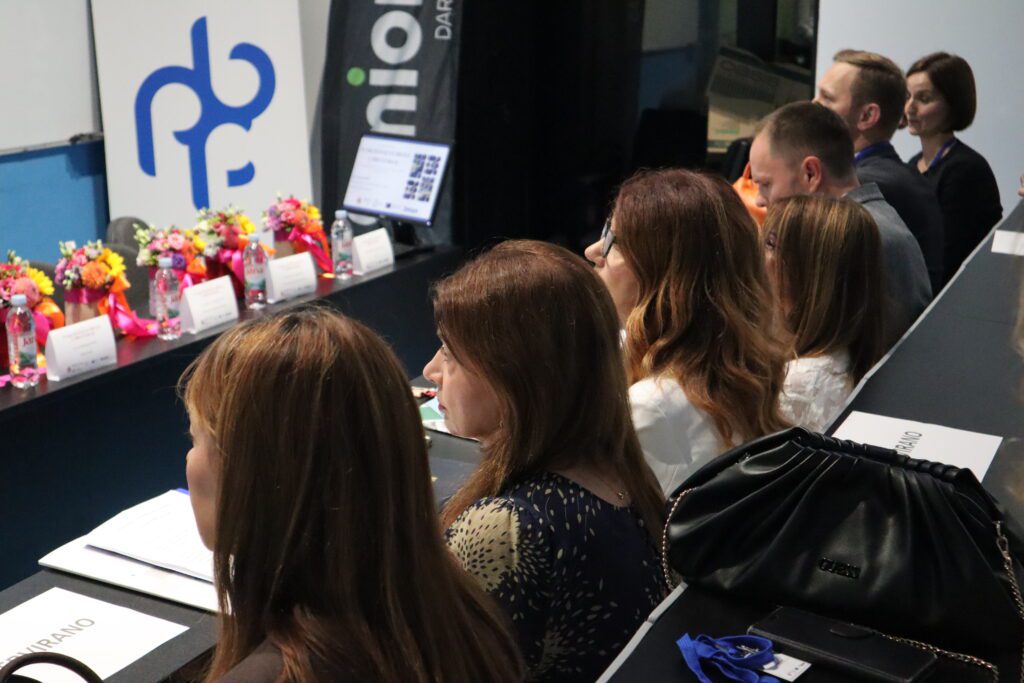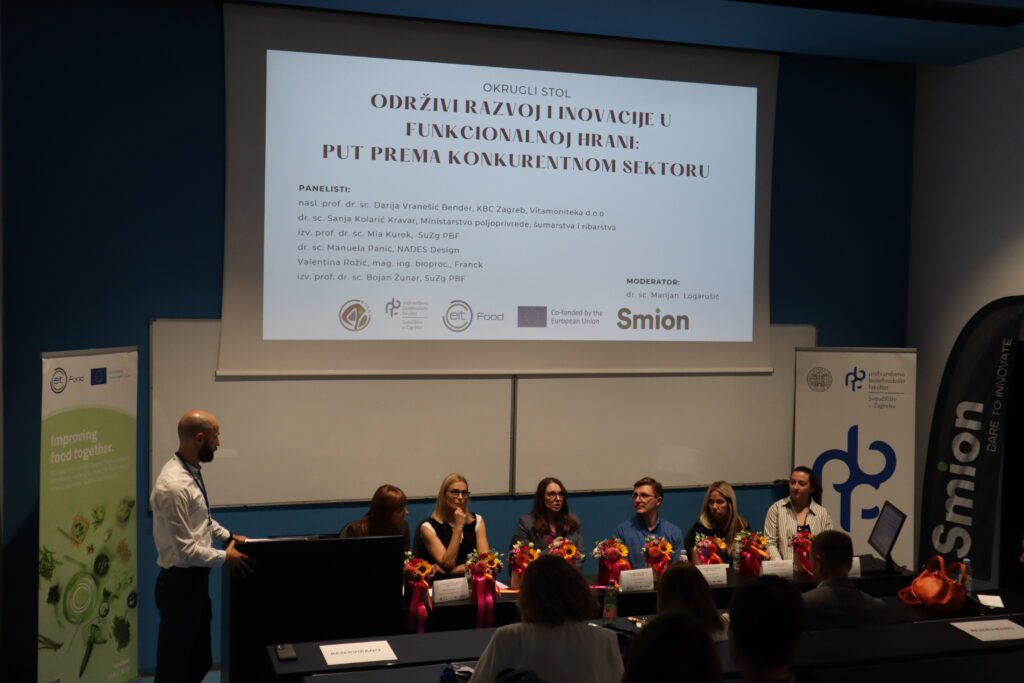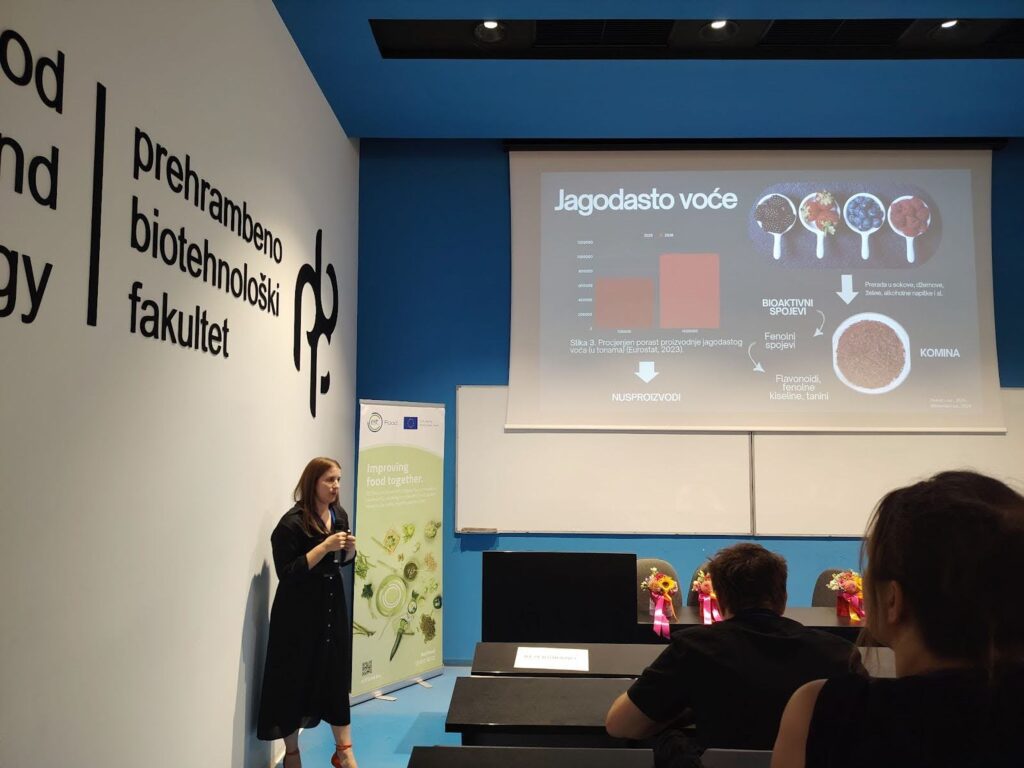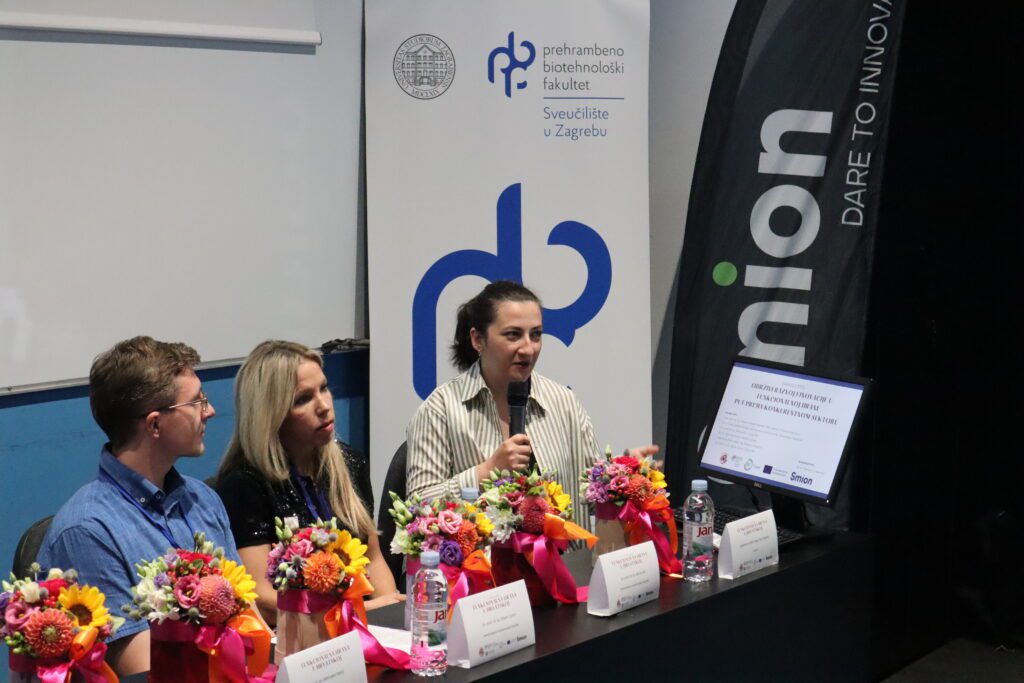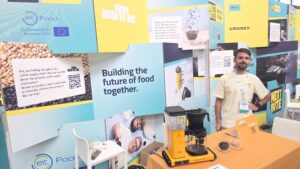The 17th professional conference titled “Functional Food in Croatia – Synergy of Industry, Science, Technology, Control, and Food Safety” was held on July 9 at the Faculty of Food Technology and Biotechnology, University of Zagreb. The event was organized by the Croatian Society of Food Technology, Biotechnology and Nutrition (HDPBN) and the Faculty of Food Technology and Biotechnology, with co-organizers including EIT Food Hub Croatia and the innovation agency Smion. The conference was held under the auspices of the Ministry of Agriculture, Forestry and Fisheries and the City of Zagreb.
The welcome address was given by Prof. Verica Dragović-Uzelac, PhD, Dean of the Faculty of Food Technology and Biotechnology, University of Zagreb, followed by Asst. Prof. Jelena Đugum, PhD, Director of the Agriculture Sector at the Croatian Chamber of Economy and long-time supporter of the conference. She highlighted the longstanding and fruitful collaboration between the Croatian Chamber of Economy and the Faculty of Food Technology and Biotechnology. Introductory remarks were also delivered by the President of HDPBN, Assoc. Prof. Irena Barukčić Jurina, PhD.
Dario Zorić, Chief Operating Officer at Smion and coordinator of EIT Food Hub Croatia, stated in his address that he was pleased to see the organization increasingly recognized as a one-stop shop for innovation in the food sector, and proud to be co-organizing this important and well-respected conference once again.
Following his remarks, the conference initiator Prof. Draženka Komes, PhD noted that the event was first held back in 2008. This year’s conference was officially opened by the new Chair of the Organizing Committee, Asst. Prof. Aleksandra Vojvodić Cebin, PhD.
The lectures covered a range of topics, including “Quality Labels as a Means to Enhance Recognition of Domestic Products” by Sanja Kolarić Kravar, PhD, from the Ministry of Agriculture, Forestry and Fisheries; “The Most Common Nutritional Deficiencies in the Population and Strategies for Prevention and Supplementation Therapy” by Assoc. Prof. Darija Vranešić Bender, PhD (University Hospital Centre Zagreb, Vitamoniteka d.o.o.); and “Functional Aspects of Marine-Sourced Collagen” by Assoc. Prof. Tibor Janči, PhD, from the Faculty of Food Technology and Biotechnology, University of Zagreb.
While Prof. Jasna Novak, PhD introduced participants to the role of prebiotics, probiotics, and postbiotics in nutrition, Prof. Jurica Žućko, PhD presented on the application of bioinformatics in food sciences. Romana Ivković shared insights on the potential use of yeast for producing protein-based sweeteners as a new direction in functional sweetener development. Anica Bebek Markovinović, PhD discussed the development of functional juices, and Ana Martić, MSc in Nutrition, presented research on the potential of blackcurrant pomace as a valuable functional ingredient.
EIT Food as a Driver of Innovation in the Agri-Food Sector
Marija Batinić Sermek, Head of the Department for Food Quality and Information at the Ministry of Agriculture, Forestry and Fisheries and a member of the EIT Food RIS Council, emphasized the importance of EIT Food mechanisms in advancing innovation. She invited Mr. Miroslaw Raba from Poland, Partnership Manager for North-East EIT Food, to share with participants examples of best practices and how EIT Food fosters innovation.
In his presentation, Mr. Raba highlighted the key challenges facing the agri-food sector, noting that these challenges also represent significant opportunities for solution development. He presented examples of best practices at the European Union level, as well as trends that will shape the future of food.
He also described the activities and projects through which EIT Food, together with its partner network, supports innovation. Mr. Raba explained the funding models for different types of projects co-financed by the European Union and partners.

Discussion on Functional Food in Croatia
A central part of the event was a panel discussion featuring the following participants: Sanja Kolarić Kravar, PhD (Ministry of Agriculture, Forestry and Fisheries), Manuela Panić, PhD (Nades Design), Assoc. Prof. Mia Kurek, PhD (University of Zagreb Faculty of Food Technology and Biotechnology, Laboratory for Food Packaging), Assoc. Prof. Bojan Žunar, PhD (University of Zagreb Faculty of Food Technology and Biotechnology, Laboratory for Biochemistry), Adj. Prof. Darija Vranešić Bender, PhD (University Hospital Centre Zagreb, Vitamoniteka d.o.o.) and Valentina Rožić (Franck). The panel was moderated by Marijan Logarušić, PhD.

Panelists’ Key Takeaways
PhD Manuela Panić PhD presented the green technology NADES Design – green solvents that can replace those currently available on the market – and described the support she received when founding her startup. Manuela participated in the EIT Food programmes Empowering Women in Agrifood Croatia (EWA) and EIT Jumpstarter.
Assoc. Prof. Darija Vranešić Bender, PhD emphasized the importance of consumer-facing strategies, noting that telling a compelling story is key to the success of sustainable products – which requires a substantial marketing budget, posing a particular challenge for small producers. She highlighted the strength of the Croatian food industry, rich in raw materials and expertise, but also pointed out differences in trends compared to foreign markets – such as skepticism towards insect-based food.
Assoc. Prof. Bojan Žunar, PhD reminded attendees to consider the seasonality of raw materials in the development of functional products. He spoke about research into the potential of using sweet proteins as alternatives to traditional sweeteners, as well as the challenges of producing them via microbial fermentation.
Valentina Rožić from Franck discussed support for innovation within large organizations and introduced a renewed team of young technologists from the Faculty of Food Technology and Biotechnology, who combine technological, nutritional, and market knowledge. Franck already uses 100% recyclable packaging for its teas and plans to expand this practice. A current market challenge, she said, is consumer education.
Assoc. Prof. Mia Kurek, PhD stressed that strict packaging regulations play a protective role by preventing the presence of unwanted compounds, even if they slow down the development of new solutions. She mentioned innovations such as collagen-based packaging made from fish waste and smart packaging technologies that track product freshness or spoilage. She noted that not every type of packaging is suitable for every product, which further complicates the development and implementation of advanced packaging solutions.
Sanja Kolarić Kravar, PhD, emphasized that the Ministry is responsible for food waste prevention policies. The goal is to financially support projects investing in new transportation, storage, and processing technologies, thereby linking the food sector with universities and institutions to make products more sustainable and reduce waste.
Join us
Croatia has the knowledge, high-quality raw materials, and a growing ecosystem for developing functional food. However, the panel clearly emphasized that real progress will only be possible through stronger links between science and industry, accelerated regulatory processes, the establishment of shared pilot plants, and systematic consumer education.
EIT Food Hub Croatia and Smion offer support to all those looking to turn innovative ideas into market-winning solutions.
Join EIT Food and let’s transform the food system together!
Contact us if you’re interested in collaborating or want to learn more about Smion or the EIT Food Hub.

